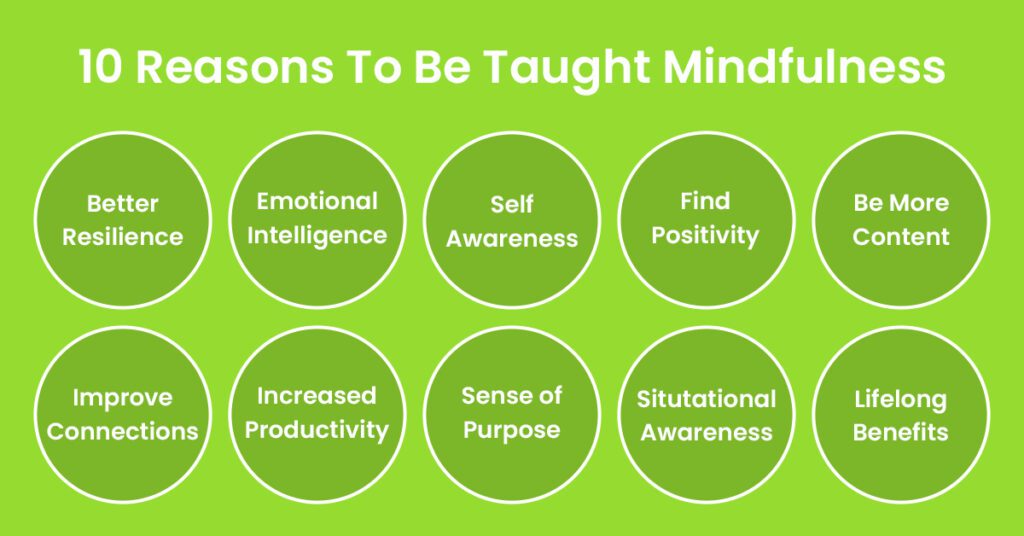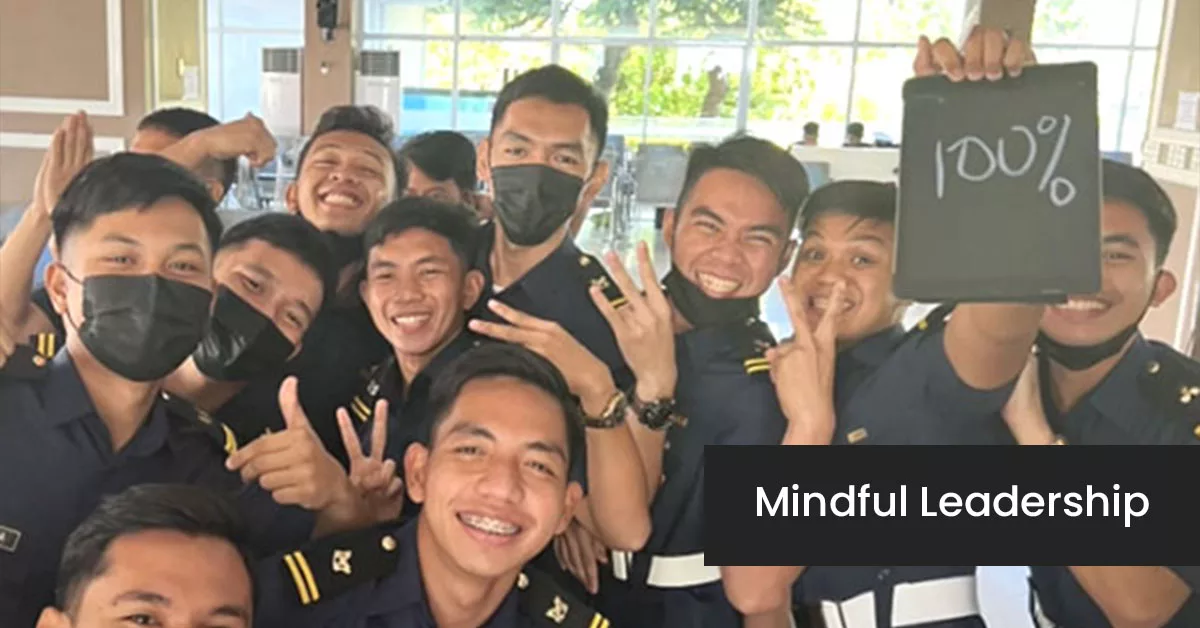
10 Powerful Reasons Every Seafarer Should Learn Mindfulness
For many years the teaching of mindfulness has been a well-recognised practice for the treatment of depression and poor mental health. Helping people manage stress, reduce anxiety, and improve their overall mental well-being. It is a powerful and effective tool that is still underutilised, especially in the seafaring industry.
WellAtSea has been working with the International Maritime Employers’ Council (IMEC) to run a program teaching mindfulness to cadets to upskill the next generation of maritime leaders before they leave the shore. The program has shown the impact mindfulness can have on seafarers as a skill to prevent harm and keep them safe at sea, rather than as a tool to be solely administered once they are already struggling or depressed.
There are many reasons why mindfulness should be in every seafarer’s armoury. From its ability to strengthen connections and camaraderie to its powerful ability to foster present-moment awareness and non-judgmental acceptance, all vital components of coping long-term in stressful environments. It promotes better communication, empathy, and understanding which can break down cultural walls and create a sense of unity, purpose, and a shared sense of mission and support from colleagues on board.

What are the top 10 reasons seafarers should be taught mindfulness?
- Mindfulness teaches seafarers about the impact of reacting vs responding in the right way.
The environment seafarers live and work in is demanding and constantly challenging. Reacting to stressors on a daily basis can cause anxiety and lead to poor mental health as well as serious medical issues. Through mindfulness techniques, seafarers can learn resilience. This enables them to handle tough situations by bringing awareness back to their body, recognising their thoughts and emotions and monitoring and managing their reactions in a less harmful way. Resilience helps seafarers navigate the demands of their work and manage the ups and downs of life on board whilst maintaining their performance and well-being. - Mindfulness helps seafarers become aware of emotions and how to deal with them.
Emotional regulation is crucial to help seafarers deal with high-pressure situations or challenging relationships with other crew members or superiors. Through mindfulness techniques, seafarers can improve their emotional intelligence by becoming self-aware and learning to recognise their emotions. This regulation enables them to respond to difficult situations more calmly and effectively so they can foster better relationships and enjoy a more harmonious environment onboard. - Mindfulness helps seafarers learn to be aware of (and responsive to) their emotions.
Many months at sea in restricted living conditions, without friends and family can easily make good and bad days merge into one, spiralling depressive thoughts and mental health concerns. Mindfulness empowers seafarers to track and navigate their good and bad days by cultivating self-awareness and emotional regulation skills to promote reflection and learning and consciously change how they handle those difficult days. They can acknowledge their experiences without self-judgement and take proactive steps to enhance their overall well-being. - Mindfulness slows down awareness to find positivity every moment.
Having the ability to pay attention to every moment through mindfulness, enables seafarers to meet their challenges in a new way. They are better able to cope with life during many months at sea by living without regrets and focusing on the joy and fulfilment of the present moment. This might be through a deeper appreciation of the unique aspects of life at sea, such as the vastness of the ocean, the beauty of sunsets or the sense of adventure. Through these aspects, they may find positivity and peace as well as be able to take more time to communicate with empathy and understanding among each other. - Mindfulness births gratitude.
By incorporating mindfulness into their daily lives, seafarers can learn to recognise and be grateful for aspects of their seafaring experience, as well as foster contentment, and embrace what exists. Even challenges such as confined living spaces or absence from loved ones can be transformed into positive experiences by intentionally noticing aspects of work or life that can be appreciated. - Mindfulness allows us to improve connections.
Life at sea can be isolating, stressful, and emotionally challenging. Seafarers often spend long periods away from their families and face demanding work schedules. Mindfulness teaches seafarers to be non-judgemental and enhances listening skills by improving self-awareness. This improves connections with colleagues and loved ones so they can better cope with the isolation, uncertainty, and pressures they may encounter during their time at sea. - Mindfulness increases productivity.
Undoubtedly, seafaring requires a high level of concentration and attention to detail. Mindfulness practices can improve focus and concentration, allowing seafarers to perform their duties with greater precision and efficiency even under duress. By training their minds to remain present and focused, seafarers can reduce distractions and improve their ability to complete tasks accurately, especially in potentially hazardous situations. - Mindfulness creates purpose.
Learning the act of gratitude through mindfulness can help seafarers operate with a sense of meaning and purpose. Recognising the importance of their role in facilitating global commerce, connecting people and nations, and supporting the economy as well as their families is a powerful and rewarding tool. Mindfulness also helps seafarers find purpose by fostering a deeper connection with the maritime environment, enhancing well-being and resilience, strengthening relationships, and facilitating personal growth and self-discovery. - Mindfulness improves safety.
Seafarers need to be constantly alert and focused. Mindfulness training can enhance their situational awareness, helping them to stay present and attentive to their surroundings. This increased awareness can reduce the risk of accidents, promote effective decision-making, and enhance overall safety on board ships. - Mindfulness skills can last forever.
Just like exercise, mindfulness is a skill that can be developed and strengthened through regular practice. The more it’s practised the more effective it is. However, once learnt, it is a skill that can be called upon and reinforced in times of stress and the benefits of self-awareness, emotional regulation, and cognitive flexibility will be lifelong.
There is no denying that mindfulness is a powerful tool that seafarers can use to improve their journey, both on and offshore. From personal growth to improved safety and productivity to managing stress, enhancing focus, regulating emotions, and coping with the unique challenges of their profession. The benefits are many and the costs of implementation are low.
Contact us to discuss the range of mindfulness programs we can run with your seafarers.
- Tags:
- Share:


No Comments Found